2026 Gregorian Calendar: Popular Holidays, Festivals, Special Days and Celebrations
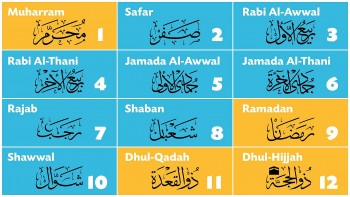 2025 Islamic Calendar: Important Dates, Holidays, Observances and Celebrations 2025 Islamic Calendar: Important Dates, Holidays, Observances and Celebrations |
 2025 Julian Calendar: Important Dates, Holidays, Observances and Celebrations 2025 Julian Calendar: Important Dates, Holidays, Observances and Celebrations |
The Gregorian Calendar is the most widely adopted calendar system globally. It serves as the primary calendar for civil and administrative purposes in most countries. The introduction of the Gregorian Calendar was a significant improvement in timekeeping, allowing for more accurate alignment with the Earth's revolutions around the Sun and providing a reliable structure for organizing time and events.
Julian Calendar And Gregorian Calendar Systems | Overview & Differences:
Here's detailed information about the most important dates and holidays in Gregorian Calendar in 2025:
Origins of The Gregorian Calendar
The Gregorian Calendar was introduced by Pope Gregory XIII in October 1582. It was a reform of the Julian Calendar, which had been in use since 46 B.C. The main purpose of the reform was to correct the Julian Calendar's slight error in calculating the length of the year, which resulted in the calendar drifting in relation to the equinoxes.
Key points of the reform included:
• Dropping 10 days from the calendar to realign the date with the equinox.
• Adjusting the rule for leap years to better approximate the solar year.
Adoption and Usage of The Gregorian Calendar
The adoption of the Gregorian Calendar varied across different countries:
Catholic countries such as Spain, Portugal, and Italy adopted it almost immediately in 1582.
Protestant and Eastern Orthodox countries adopted it more slowly. For instance, Great Britain and its colonies adopted it in 1752, and Russia adopted it in 1918.
Today, it is the internationally accepted civil calendar and is used for most official purposes around the world.
Who Uses the Gregorian Calendar
Western Countries
• All countries in North and South America.
• All countries in Europe, including those with predominantly Catholic, Protestant, and Orthodox Christian populations.
• Most countries in Australia and Oceania.
Asia
• Japan uses the Gregorian Calendar for civil purposes, although it also maintains the traditional Japanese calendar.
• South Korea and Taiwan primarily use the Gregorian Calendar alongside their traditional calendars.
• The Philippines, predominantly Catholic, uses the Gregorian Calendar.
• In India, the Gregorian Calendar is used for administrative purposes, although traditional Hindu calendars are used for religious events.
Africa
• Almost all African countries use the Gregorian Calendar for civil and administrative purposes, influenced by colonial histories.
Middle East
• Many countries use the Gregorian Calendar for civil purposes, even if they maintain Islamic calendars for religious events (e.g., Saudi Arabia, Egypt, Turkey).
How the Gregorian Calendar Works
A year is typically 365 days. Every four years, an extra day is added to February, making it 29 days long, creating a leap year of 366 days. To determine if a year is a leap year: The year must be divisible by 4. If the year is divisible by 100, it is not a leap year unless it is also divisible by 400.
The calendar is divided into 12 months of varying lengths. Days of the week cycle continuously without interruption by the months or years.
The calendar is designed to keep the average year length close to the solar year (the time it takes the Earth to orbit the Sun), which is about 365.2425 days. The Gregorian adjustment brings the average year length to 365.2425 days, which is much closer to the solar year compared to the Julian Calendar’s 365.25 days.
Gregorian Months of the Year
The Gregorian Calendar consists of 12 months:
• January - 31 days
• February - 28 days (29 in a leap year)
• March - 31 days
• April - 30 days
• May - 31 days
• June - 30 days
• July - 31 days
• August - 31 days
• September - 30 days
• October - 31 days
• November - 30 days
• December - 31 days
Learn More: How Many Weeks In a a Common Year and Leap Year?
Key Dates and Holidays in The Gregorian Calendar 2026
January 1 - New Year's Day
 |
| New Year's Day |
Celebrated worldwide, New Year's Day marks the beginning of the calendar year. It's a time for reflecting on the past year and making resolutions for the future. Traditions include fireworks, parties, and watching the countdown to midnight.
January 20 - Martin Luther King Jr. Day
Observed on the third Monday of January, this federal holiday honors the civil rights leader Martin Luther King Jr. It celebrates his contributions to advancing racial equality and justice in the United States. The day is marked by various activities, including educational programs, community service, and reflections on King's legacy of nonviolent activism.
February 14 - Valentine's Day
Known as a day of love and romance, Valentine's Day is celebrated by exchanging cards, flowers, chocolates, and other gifts between loved ones. It's a time to express affection and appreciation for partners, friends, and family.
February 17 - Presidents' Day
This federal holiday, observed on the third Monday of February, honors all U.S. presidents, particularly George Washington and Abraham Lincoln, whose birthdays are in February. It's a day for remembering the contributions of these leaders, with some people taking part in historical reenactments or visiting presidential memorials.
March 17 - St. Patrick's Day
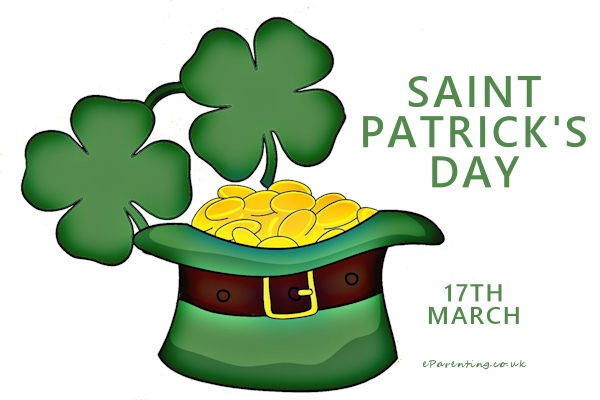 |
| St. Patrick's Day |
St. Patrick's Day celebrates the patron saint of Ireland, St. Patrick. It's widely observed in Ireland and by Irish communities around the world. The day is marked by parades, wearing green, and various festivities celebrating Irish culture, including music, dance, and traditional foods. The shamrock, a symbol of Ireland, is prominently featured.
March 20 - First Day of Spring (Vernal Equinox)
The vernal equinox marks the beginning of spring in the Northern Hemisphere when day and night are approximately equal in length. It signifies a time of renewal and growth, with many cultures celebrating with festivals and rituals that honor the changing seasons.
April 1 - April Fool's Day
Known for pranks and practical jokes, April Fool's Day is a light-hearted day where people play tricks on each other. These pranks can range from simple jokes to elaborate hoaxes, and the day is often celebrated with laughter and good-natured fun.
Read More: April Fools’ Day: Top 30 Best Pranks For Your Boss and Colleagues
April 20 - Easter Sunday
Easter Sunday is a significant Christian holiday celebrating the resurrection of Jesus Christ from the dead, as described in the New Testament. It's a day of joy and celebration, often marked by attending church services, sharing festive meals, and participating in Easter egg hunts, where children search for decorated eggs filled with treats.
April 22 - Earth Day
Earth Day is a global event dedicated to environmental protection and raising awareness about ecological issues. People participate in various activities like tree planting, clean-up drives, and educational events to promote sustainability and conservation efforts.
May 5 - Cinco de Mayo
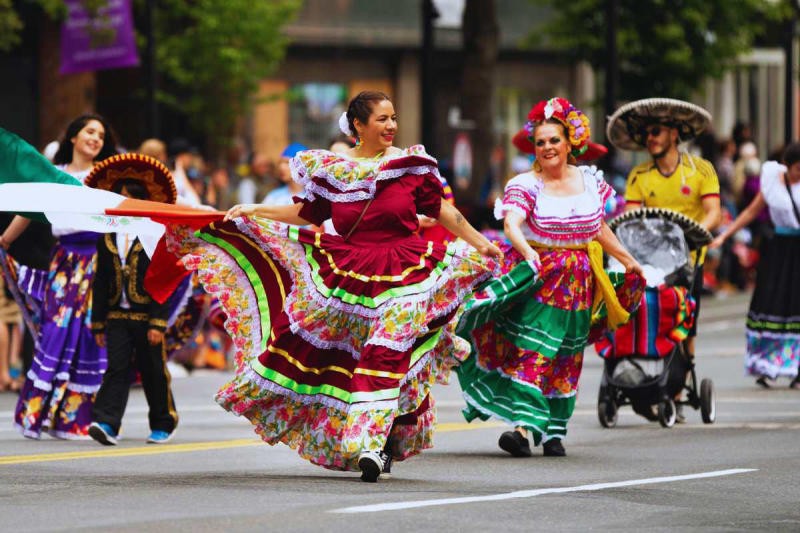 |
| Cinco de Mayo |
This day commemorates the Mexican army's victory over French forces at the Battle of Puebla on May 5, 1862. While it is a relatively minor holiday in Mexico, Cinco de Mayo has become a celebration of Mexican culture and heritage in the United States, featuring parades, music, dancing, and traditional Mexican foods.
May 11 - Mother's Day
Celebrated on the second Sunday of May, Mother's Day honors mothers and mother figures. It's a day to show appreciation and gratitude for their love, care, and contributions. People often give gifts, flowers, and cards, and spend time with their mothers, making it a cherished family day.
May 26 - Memorial Day
Memorial Day, observed on the last Monday of May, honors the men and women who have died in military service to the United States. It originated after the American Civil War and became an official federal holiday in 1971. The day is marked by ceremonies at cemeteries and memorials, parades, and the decoration of graves with flowers and flags. It also serves as an unofficial start to the summer season in the U.S., often celebrated with picnics, barbecues, and family gatherings.
June 16 - Father's Day
Celebrated on the third Sunday of June, Father's Day honors fathers and father figures. It's a day to recognize their contributions to their families and society. People often celebrate by giving gifts, cards, and spending quality time with their fathers. The holiday emphasizes the importance of paternal bonds and fatherhood.
June 21 - First Day of Summer (Summer Solstice)
The summer solstice marks the longest day of the year in the Northern Hemisphere, signaling the start of summer. It occurs when one of Earth's poles has its maximum tilt toward the Sun. Many cultures celebrate this day with festivals and rituals that honor the sun and the warmth it brings, embracing outdoor activities and gatherings.
Read More: What Is the Summer Solstice - the Longest Day of the Year: Facts and Celebrations?
July 4 - Independence Day
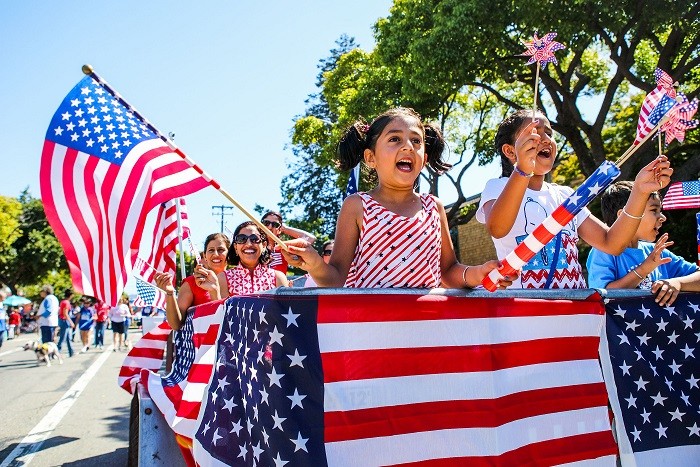 |
| Independence Day |
Independence Day commemorates the adoption of the Declaration of Independence on July 4, 1776, when the American colonies declared their independence from Great Britain. It's a major national holiday in the United States, celebrated with fireworks, parades, concerts, and patriotic displays. It's a day of national pride, reflecting on American history, freedom, and values.
August 1 - Friendship Day
Friendship Day, celebrated on the first Sunday of August, honors the bonds of friendship. It encourages people to appreciate their friends and the role they play in their lives. The day is often marked by exchanging friendship bands, cards, and gifts, and spending time with friends.
Learn More: Best Descriptive Essay on Friendship
September 1 - Labor Day
Labor Day, observed on the first Monday of September, honors the contributions of American workers and the labor movement. It's a federal holiday that marks the end of summer, celebrated with parades, picnics, and barbecues. It also serves as a reminder of the social and economic achievements of workers.
September 22 - First Day of Fall (Autumnal Equinox)
The autumnal equinox marks the beginning of fall in the Northern Hemisphere when day and night are nearly equal in length. It's a time when the weather cools, and leaves begin to change color. The equinox is often associated with harvest festivals and the preparation for winter.
October 14 - Columbus Day
Columbus Day, observed on the second Monday of October, commemorates Christopher Columbus's arrival in the Americas on October 12, 1492. It's a day that celebrates Italian-American heritage and the exploration era. The holiday is marked by parades and cultural events, though it has become controversial due to the impact of colonization on indigenous peoples.
October 31 - Halloween
 |
| Halloween |
Halloween is celebrated on the night of October 31. It has roots in ancient Celtic traditions, particularly the festival of Samhain. Today, it's a day for dressing up in costumes, trick-or-treating, and enjoying spooky decorations and activities. Halloween is popular for its haunted houses, horror movies, and festivities that embrace the supernatural and macabre.
November 11 - Veterans Day
Veterans Day honors military veterans who have served in the U.S. Armed Forces. It coincides with Armistice Day and Remembrance Day, which commemorate the end of World War I. The day includes ceremonies, parades, and events that recognize the sacrifices and contributions of veterans to the nation's security.
November 27 - Thanksgiving Day
Thanksgiving, celebrated on the fourth Thursday of November, is a day for giving thanks and celebrating the harvest. It has historical roots in early American history, with the Pilgrims and Native Americans sharing a feast. Today, it's marked by family gatherings, traditional meals including turkey and pie, and expressions of gratitude.
December 25 - Christmas Day
Christmas celebrates the birth of Jesus Christ and is a major Christian holiday observed worldwide. It's a time for festive decorations, gift-giving, and family gatherings. The holiday features traditions like decorating Christmas trees, singing carols, and enjoying special meals. It's also associated with Santa Claus and the exchange of gifts.
December 31 - New Year's Eve
New Year's Eve is the last day of the year, celebrated with parties, fireworks, and countdowns to midnight. It's a time for reflection on the past year and anticipation for the new one. Many people make resolutions and participate in traditions like kissing at midnight and watching the "ball drop" in Times Square, New York City.
Conclusion
Throughout the year, various cultural, religious, and social observances will take place, reflecting the diversity and richness of traditions worldwide. Whether it’s Diwali, Hanukkah, Ramadan, or the Lunar New Year, each brings unique customs and significance, contributing to the tapestry of our shared human experience.
Stay tuned to local and national announcements for specific dates and additional events. By staying informed, you can ensure that 2025 is filled with meaningful and memorable moments.
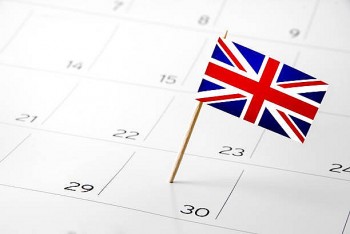 2025 UK Calendar - Full List of Public Holidays And Observances: Dates and Celebrations 2025 UK Calendar - Full List of Public Holidays And Observances: Dates and Celebrations Whether you are planning a vacation, organizing events, or simply looking to make the most of your time off, this comprehensive guide provides all the ... |
 2025 Canada Calendar - Full List of Public Holidays And Observances: Dates and Celebrations 2025 Canada Calendar - Full List of Public Holidays And Observances: Dates and Celebrations Let's explore the 2025 Canada Calendar for a complete list of national and regional holidays, festivals, and observances, including dates and celebrations. |
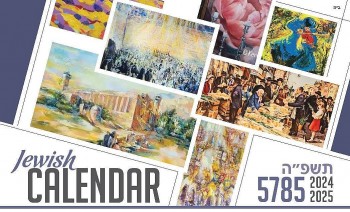 2025 Jewish Calendar: Important Dates, Holidays, Observances and Celebrations 2025 Jewish Calendar: Important Dates, Holidays, Observances and Celebrations Check out the full list of the Jewish holidays in 2025 and the most popular festivals and celebrations. |


























